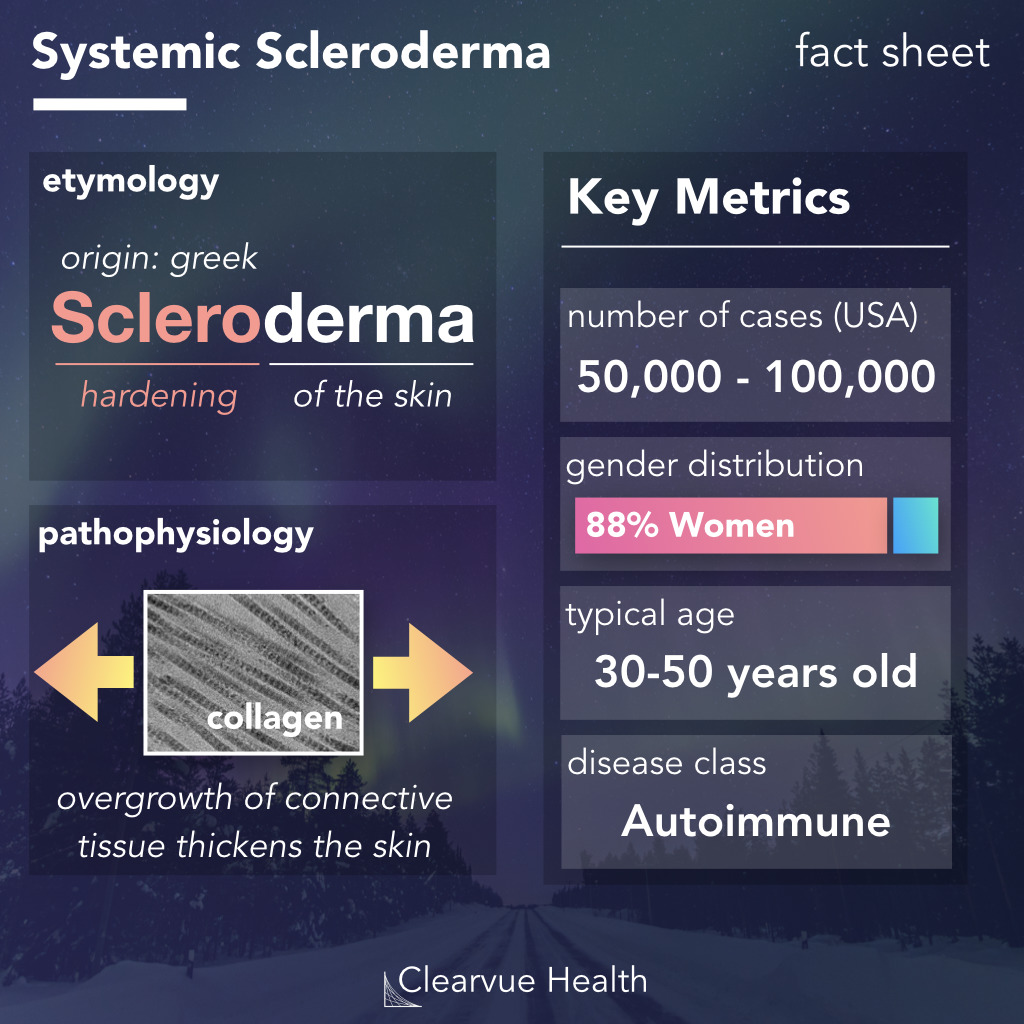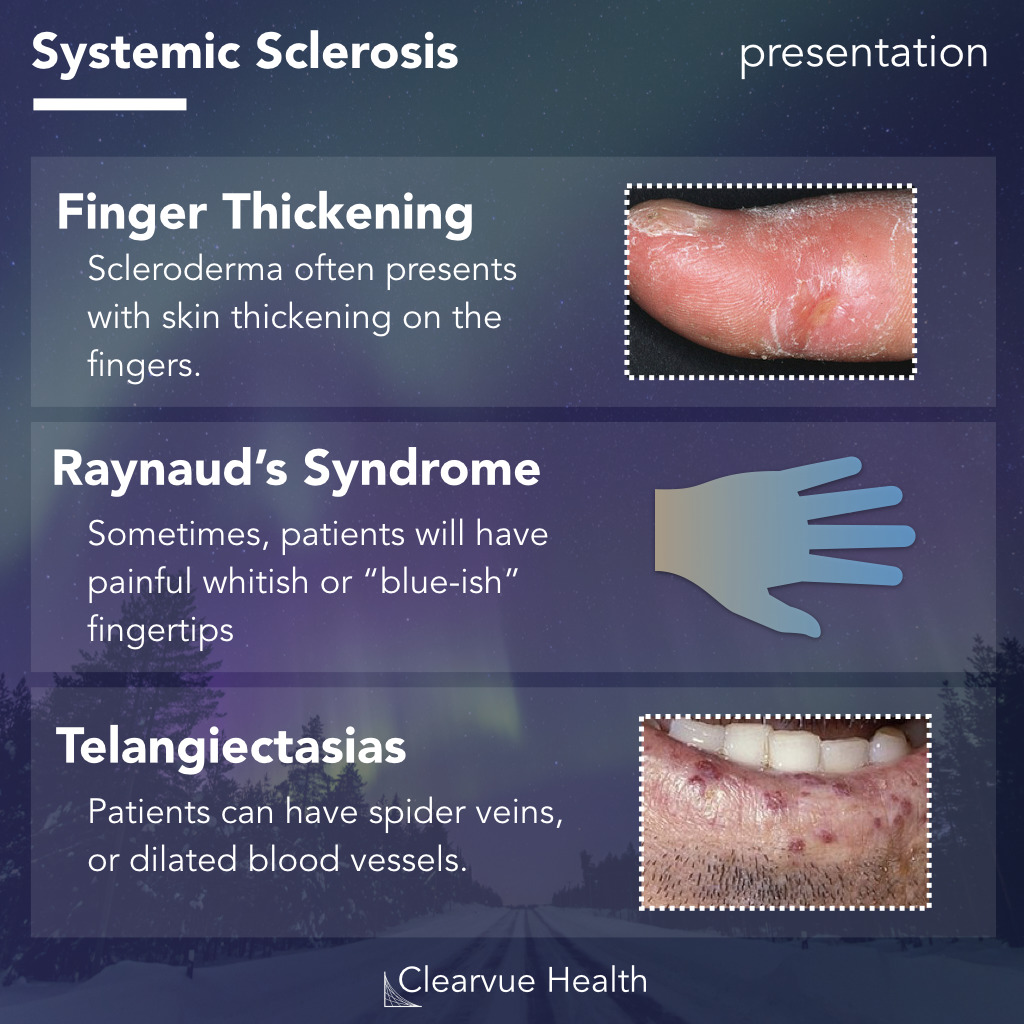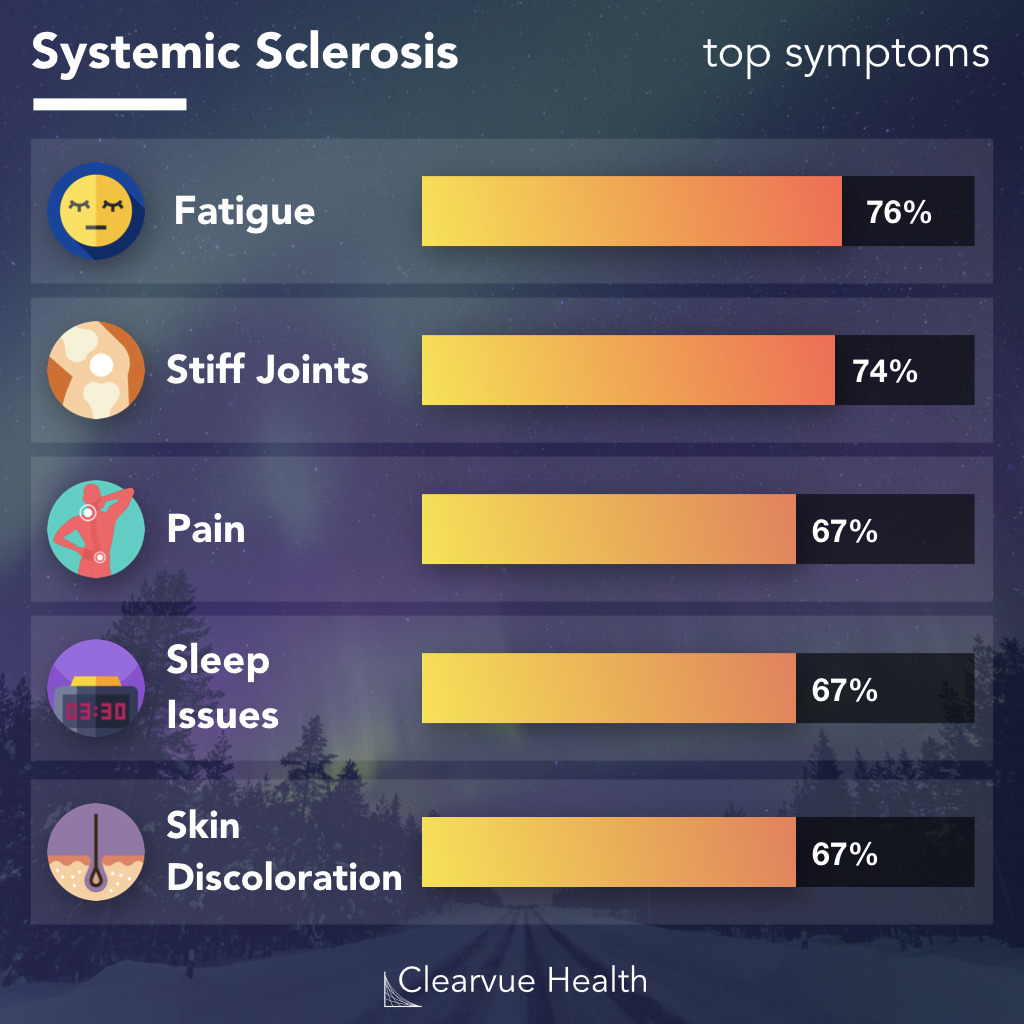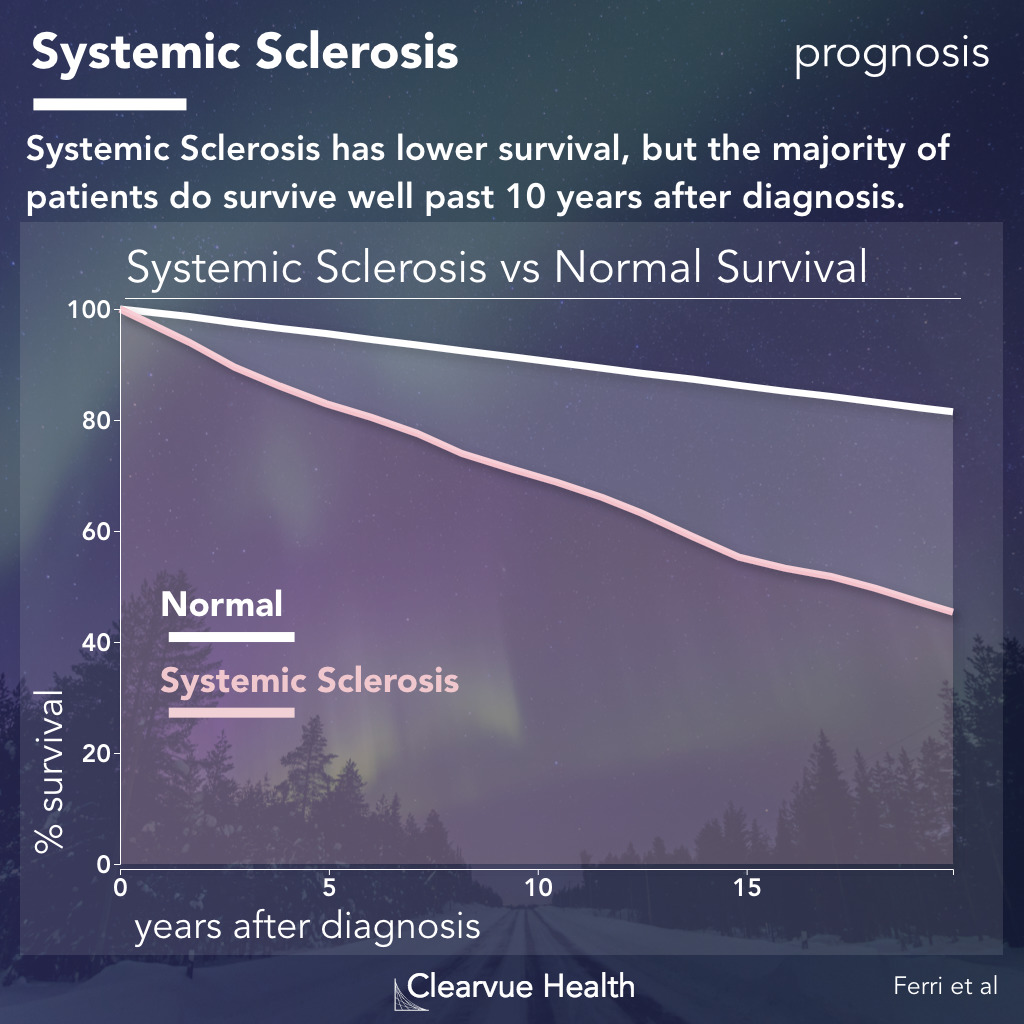
Systemic sclerosis is a rare but potentially deadly disease that affects mostly middle aged women.
It is defined as an autoimmune disorder. These are diseases where your immune system attacks your own body. Your immune system normally protects you from harmful bacteria, viruses, and other germs. In systemic sclerosis, some cells in your immune system erroneously recognize your own healthy cells as “invaders” and begins attacking them.
There are few good estimates on the prevalence of systemic sclerosis. Most estimates center around 50-100,000 patients in the United States.
This disease affects more women than men. Generally, studies have found that 80-90% of the patients are women.
Typically, patients are diagnosed later in life, around ages 30-50.
Presentation of Systemic Sclerosis

The symptoms of systemic sclerosis are broad. For more in depth information regarding the diagnostic criteria of systemic sclerosis, we recommend the link below:
Source: 2013 Classification Criteria for Systemic Sclerosis: An American College of Rheumatology/European League Against Rheumatism Collaborative Initiative
We’ve highlighted 3 common symptoms below that patients may notice first in the course of their disease:
Thickening of the skin on your fingers: As evidenced by the etymology of Sclerosis (hardening of the skin), thickening or hardening of the skin is the most classic symptom of systemic sclerosis. In fact, it is the only symptom that is sufficient (though not necessary) to diagnose systemic sclerosis:
"Skin thickening of the fingers of both hands extending proximal to the metacarpophalangeal joints (sufficient criterion)""
--
Raynaud's Syndrome: This is a condition where the blood vessels in your fingers shrink, reducing the flow of blood. Your fingers can become white or blue-ish. This is relatively common, and does not by itself suggest that you have systemic sclerosis.
Telangiectasias: Telangiectasias look like discolored spots on your skin. These are blood vessels near the surface of your skin that become dilated. The most typical locations are on your hands and your face.
Source: Pathogenesis of telangiectasia in scleroderma.
Top Symptoms of Systemic Sclerosis

While the specific symptoms of systemic sclerosis are diverse, most patients do share a few common symptoms. The top three most common symptoms include fatigue (76%), stiff joints (74%), and loss of strength (68%). These are not usually reported as “classic” systemic sclerosis symptoms, but as shown in the data, they are a significant part of what patients experience with systemic sclerosis.
Source: Fatigue: an overlooked determinant of physical function in scleroderma.
Prognosis of Systemic Sclerosis

Prognosis can be difficult to estimate for rare diseases. One of the largest studies, covering 1,012 Italian Systemic Sclerosis patients did provide a reasonably robust estimate of survival compared to the average expected survival in Italy.
Their data showed that well over half of patients survived past 10 years, and nearly half survived to 20 years. This was significantly lower than the average expected survival rate of 80.6% in the general Italian population.
Source: Systemic Sclerosis: Demographic, Clinical, and Serologic Features and Survival in 1,012 Italian Patients
As this research was conducted in 2002, and thus covered patients who diagnosed prior to 1980, it’s plausible that today’s patients have a much better prognosis than that shown in this data.
While we don’t yet have a cure for systemic sclerosis, modern therapies may have improved survival and quality of life in systemic sclerosis patients since the 1980s.
Source: The impact of cardiopulmonary manifestations on the mortality of SSc: a systematic review and meta-analysis of observational studies.








































